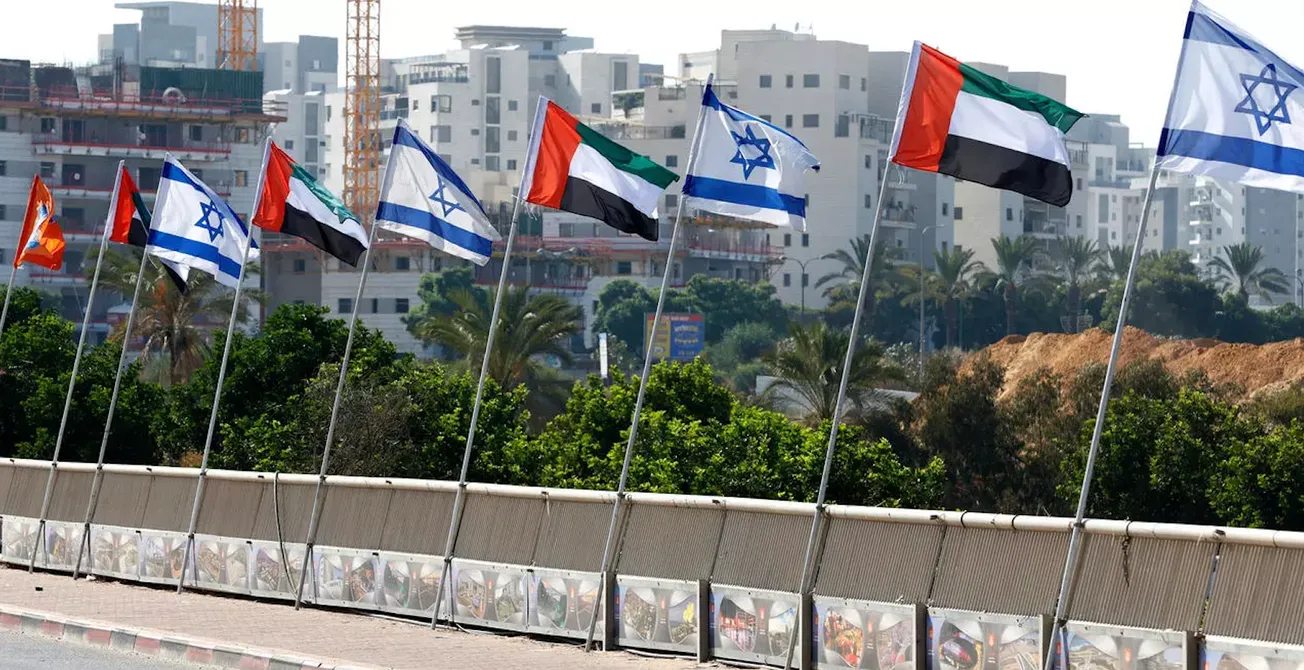Table of Contents
On September 15th, representatives of the United States, Israel, Bahrain, and the United Arab Emirates, signed the Abraham Accords at the White House. As part of the Accords, the UAE and Bahrain both recognized Israel as a nation, and all three countries agreed to open diplomatic missions. The Accords are a major step in normalizing relations between Israel and the Arab States of the Persian Gulf — or the Arabian Gulf, if you ask the Arabs (though I, a Persian, am partial to the former!).
There is no doubt that the Accords are a significant political document. The UAE and Bahrain have long harbored animosity towards the Jewish State, but today citizens of both countries are traveling to and from Israel.
The Abraham Accords will not have merely political effects, but will change the entire Middle East’s economic and technological environment. They represent a changing era of Middle East foreign policy, wherein the traditional political divides have given way to new incentives. Oil-dependent Arab nations are now looking to Israeli innovation to diversify their own economies, and pursue a new path of prosperity.
For the past half-century, countries like the UAE and Bahrain have amassed unprecedented wealth from oil. But oil revenues in the Gulf have dwindled from increased production around the world. Demand has taken a freefall amid the coronavirus pandemic and the general shift toward carbon-free energy. In this new economic paradigm, they face a choice: diversification or decline.
Israel is an attractive economy for Arab investment because of the sheer volume of new innovation. With just over 8 million people, the small nation holds the most startups per capita in the world by a large margin. And with numbers like these, it’s not just neighbors who are taking notice.
In my time at Israel Investment Fund Group (IIFG), a Los Angeles based Venture Capital and Private Equity firm that invests solely in Israeli companies, I have seen firsthand the fast-paced and relentless nature of Israeli entrepreneurship, and how it exacts impact on the world. Today, Israel is responsible for the third-most companies listed on the NASDAQ, behind only the United States and China.
An IIFG portfolio company that recently joined the NASDAQ is Nanox Imaging, a medical imaging company that pioneered a cheaper alternative to X-rays. They held their IPO in August. As a student of capital markets for many years, it was tremendously instructive to watch one of our portfolio companies transition from the private markets to the public markets.
And this was just one deal. Even in the wake of a global pandemic, investments abound. There has never been a shortage of innovation to drive new transactions in the Israeli market. Investors like IIFG have a unique opportunity to participate, as I saw this summer. While by every measure Israel is a fertile investment environment, investment capital is what brings viable ideas to reality.
And if you were looking for nearly unlimited capital to invest in Israeli companies, you need not look further than the bottomless barrel of oil wealth in the Arab Gulf States. It’s no coincidence that they’re Israel’s newest allies.
Israel is a beacon of technological innovation in the Middle East. Great advances in the fields of biopharmaceuticals and information technology make Israel an indispensable nation for Arab principalities to diversify, and make a new ally in the region.
If the development and persistent dominance of the United States has taught us anything, it is that technology and entrepreneurial spirit are the supreme source of geopolitical capital. Consistent access to proprietary technologies is a form of leverage that a nation can use to its advantage. In this new age of international cooperation, the Abraham Accords set a precedent for fruitful economic growth between former adversaries. As more countries in the region join them, they can help make the Middle East into a modern, enterprising promised land.








